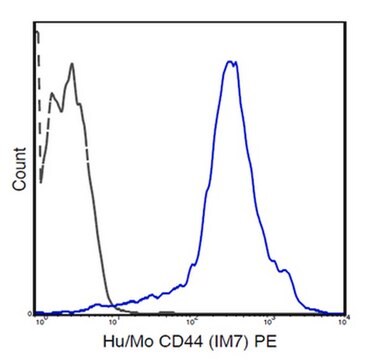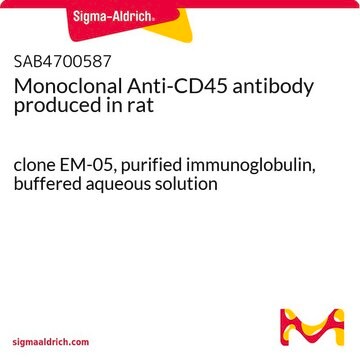MABF2117
Anti-insulin peptide–MHC Antibody, clone mAb287
clone mAb287, from mouse
About This Item
Empfohlene Produkte
Biologische Quelle
mouse
Antikörperform
purified antibody
Antikörper-Produkttyp
primary antibodies
Klon
mAb287, monoclonal
Speziesreaktivität
mouse
Verpackung
antibody small pack of 25 μg
Methode(n)
ELISA: suitable
flow cytometry: suitable
inhibition assay: suitable
Isotyp
IgG1κ
Posttranslationale Modifikation Target
unmodified
Angaben zum Gen
mouse ... Ins1(16333)
Allgemeine Beschreibung
Spezifität
Immunogen
Anwendung
Zelluläre Signaltransduktion
ELISA Analysis: A representative lot detected insulin peptide MHC in ELISA applications (Zhang, L., et. al. (2014). Proc Natl Acad Sci USA. 111(7):2656-61).
Inhibition Analysis: A representative lot of this antibody inhibited in vitro responses of insulin-specific T-cell hybridomas/transfectomas. (Zhang, L., et. al. (2014). Proc Natl Acad Sci USA. 111(7):2656-61).
Qualität
Physikalische Form
Lagerung und Haltbarkeit
Sonstige Hinweise
Haftungsausschluss
Sie haben nicht das passende Produkt gefunden?
Probieren Sie unser Produkt-Auswahlhilfe. aus.
Analysenzertifikate (COA)
Suchen Sie nach Analysenzertifikate (COA), indem Sie die Lot-/Chargennummer des Produkts eingeben. Lot- und Chargennummern sind auf dem Produktetikett hinter den Wörtern ‘Lot’ oder ‘Batch’ (Lot oder Charge) zu finden.
Besitzen Sie dieses Produkt bereits?
In der Dokumentenbibliothek finden Sie die Dokumentation zu den Produkten, die Sie kürzlich erworben haben.
Unser Team von Wissenschaftlern verfügt über Erfahrung in allen Forschungsbereichen einschließlich Life Science, Materialwissenschaften, chemischer Synthese, Chromatographie, Analytik und vielen mehr..
Setzen Sie sich mit dem technischen Dienst in Verbindung.








